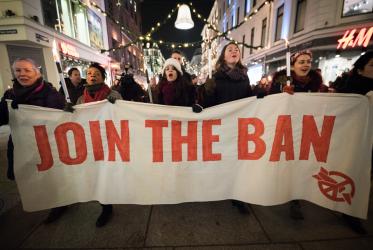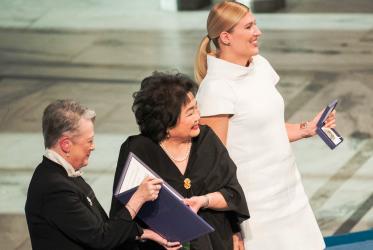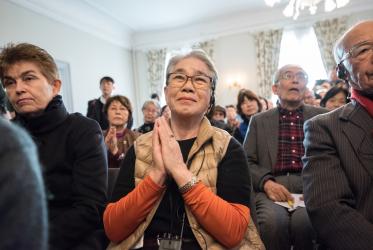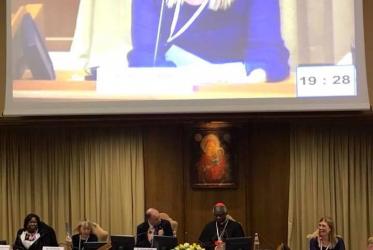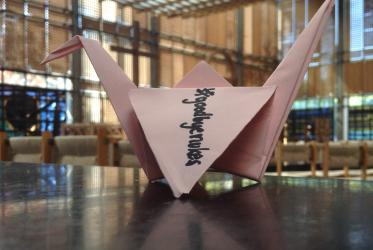Displaying 41 - 60 of 154
Trying to do good for the world
18 December 2017
Global peacemakers join torchlight march in Oslo
10 December 2017
Nobel winners plan next steps for banning nuclear weapons
10 December 2017
WCC congratulates Nobel Peace Prize laureate ICAN
06 October 2017
We are called to work on a peace built on trust, not power
04 August 2017

